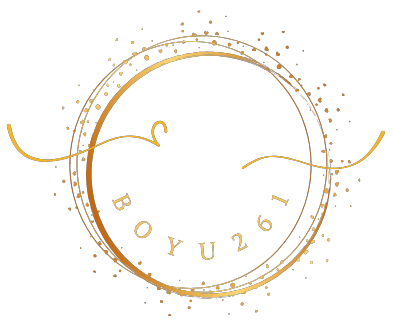Artificial Intelligence (AI) has revolutionized various fields, from art and literature to healthcare and transportation uncensored ai generator. One of the most intriguing and, at times, controversial aspects of AI is its ability to generate content. AI-powered generators—capable of creating everything from images to text—have become more sophisticated, with popular tools like DALL·E, GPT, and others enabling users to craft innovative works with minimal input.
While these advancements are exciting, they also present a complex ethical dilemma. The rise of “uncensored” AI generators—systems that allow users to produce content without filtering or restrictions—has sparked heated debates about responsibility, accountability, and the impact on society.
In this post, we will explore the ethics surrounding uncensored AI generators in 2024 and examine the potential consequences of using such tools without proper safeguards.
The Promise and Power of Uncensored AI Generators
The appeal of uncensored AI generators is clear. These systems provide users with unprecedented creative freedom, offering the ability to produce content in a matter of seconds that once required significant effort and expertise. Uncensored AI allows for:
- Unleashing Creativity: Artists, writers, and designers can push the boundaries of their work, using AI as a tool to explore new ideas without limitations.
- Access to Resources: Anyone with an internet connection can now generate high-quality content, democratizing creativity and allowing diverse voices to be heard.
- Increased Efficiency: Tasks that once took hours, such as designing graphics or generating text, can now be completed rapidly, freeing up time for more complex and innovative work.
These benefits position uncensored AI as a powerful tool for creative professionals and the general public alike. However, without proper regulation or oversight, the same power can be used in problematic ways.
The Ethical Pitfalls: When Uncensored Becomes Unchecked
Uncensored AI generators may lack certain safeguards designed to ensure responsible use. While the absence of restrictions can foster creativity, it can also open the door to misuse. Some of the most concerning ethical issues include:
1. Misinformation and Disinformation
AI generators are capable of producing highly realistic content, including fake news, deepfakes, and misleading visuals. In the wrong hands, this technology could be used to manipulate public opinion, spread false narratives, or even incite violence. The lack of oversight means that harmful content could easily slip through the cracks, influencing individuals and communities on a large scale.
2. Hate Speech and Harmful Content
Without filtering mechanisms, uncensored AI generators may inadvertently or intentionally create offensive, harmful, or discriminatory content. This includes everything from racist or sexist imagery to violent or abusive language. While some users may deliberately seek to produce such content, others may unknowingly generate harmful material due to biases inherent in the AI’s training data.
3. Intellectual Property Issues
AI-generated content is often based on vast datasets drawn from existing works. This raises concerns about copyright infringement and plagiarism, as AI tools can easily replicate or transform existing ideas. When users produce content that closely mirrors copyrighted works, it poses legal challenges and could undermine the value of original creativity.
4. Bias and Discrimination
AI systems are only as ethical as the data they are trained on. If the dataset contains biased or discriminatory material, the AI will inevitably reflect those biases in its output. Uncensored AI generators might perpetuate stereotypes or generate content that disproportionately favors certain groups while marginalizing others. This is especially troubling in contexts like hiring practices, healthcare, or law enforcement, where biases can have far-reaching consequences.
The Responsibility of Developers and Users
As the use of uncensored AI generators continues to grow, both developers and users must assume responsibility for the ethical implications of their creations.
Developers’ Role: Ensuring Ethical Design
AI developers are tasked with the responsibility of designing systems that prioritize safety, fairness, and accountability. This includes:
- Building Bias Mitigation Mechanisms: Developers must strive to reduce bias in AI systems by using diverse datasets and implementing methods to flag or correct biased outputs.
- Creating Transparency: Users should be made aware of the potential risks associated with AI tools. This transparency can help users make informed decisions about how and when to use these technologies.
- Implementing Safety Features: While an uncensored AI generator may be free of restrictions, there must be safeguards in place to identify harmful content. This could include warning systems or the ability to block certain types of content based on community guidelines or ethical standards.
Users’ Role: Ethical Content Creation
Users of uncensored AI generators must also consider the impact of their actions. Ethical content creation involves:
- Being Mindful of Potential Harm: Before generating content, users should consider the broader implications of their work. Is the content harmful or offensive? Does it contribute to misinformation or perpetuate harmful stereotypes?
- Respecting Intellectual Property: Users must be careful not to infringe upon copyrighted materials or plagiarize the work of others.
- Fostering a Positive Community: Users should be proactive in promoting responsible AI use by engaging in discussions around ethics and encouraging others to use AI responsibly.
Balancing Freedom and Responsibility
The challenge of navigating the ethics of uncensored AI generators lies in striking a balance between creative freedom and responsible use. While it is essential to allow for innovation and expression, it is equally important to mitigate the potential harms that arise from misuse. Developers, users, and policymakers must work together to establish guidelines and safeguards that promote ethical use while preserving the core benefits of AI-generated content.
In 2024, we are at a critical juncture. As AI technology evolves and becomes more pervasive, it will be up to society to determine how to responsibly harness its power. Whether through technological solutions, legal frameworks, or cultural norms, navigating the ethics of uncensored AI will require ongoing dialogue and collaboration to ensure a future where AI benefits all, without compromising our values.
